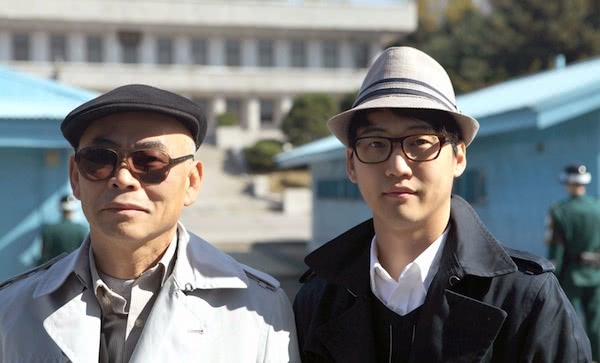Letters From Pyongyang is a short film about seperation, isolation and family. Canadian-Korean director Jason Lee charts his family’s attempts to contact long-lost relatives in the Democratic People’s Republic of Korea, and their unexpected success in gaining access to one of the most secretive nations on the planet. The intrigue that surrounds life in North Korea – the day to day realities, the paranoia and state surveillance – is something that fascinates many people, yet, as Lee struggles to emphasise, such political commentary was far from his purpose. BRAG caught up with the documentary maker before the film screens at next year’s Flickerfest.
Adam Norris: You make a clear point that this is not a film about North Korea per se, but is the very personal story of your own family. However, given the severe secrecy with which the country shrouds itself, isn’t any insight – especially that of a family – something an audience will inherently attempt to construe as representative?
Jason Lee: Of course it’s an important part of the film that audiences are often most curious about and viewers will glean what they can from what I show. My intentions, however, were to make a film about Korea’s shared tragedy through the lens of my family’s story and my father’s journey, which isn’t just ‘about’ North Korea. The film looks back to a common history and my uncle’s story begins before notions of North and South Korea even existed. So to reduce it to a film about North Korea is, in my opinion, a distorted and facile way of understanding my intentions and what the film is actually about.
AN: When attention is drawn to the political genesis of such a struggle, is it not the documentarian’s intention to lay this knowledge as foundation for his filmic vision to build upon?
JL: My family’s story is intrinsically intertwined with historic events of the past century that manifested in Korea. Many people just don’t know about what happened before and during the Korean War as it’s often labeled as the ‘Forgotten War’. It was important for me to outline the political genesis of Korea’s historic struggles in order to understand my uncle’s motivations and the reasons why he and thousands of Korean families have since been divided, which also provides insight into the present day disaccord.
AN: To that end, what do you believe are the responsibilities of the documentary maker towards their subject, if any? Is there involvement with their content, or should they strive to maintain an objective eye?
JL: There are two ways to go about filming in a restricted area. The quicker way might entail sneaking in cameras and filming in fear of being caught and the slower way would be getting proper authorisation, which may or may not be granted at all. Both approaches would make two completely different films and also have two very different ethical implications. I approached the production of my film by employing the latter method.
My goal was to tell my family’s story with the ideals of objectivity in mind, but it’s also a personal documentary, which is inevitably coloured by my own point of view. There are conscious decisions made during the editing process in terms of what to show and what not to show.
Unfortunately, it’s still an awful and tragic situation for divided Korean families with too many of them simply dying of old age waiting for a chance to reunite with their lost family members. It was by no means an easy quest for my film, but I believe in the saying ‘where there’s a will, there’s a way’.
BY ADAM NORRIS
Letters From Pyongyang screens at Flickerfest 2014 at 4.30pm Tuesday January 14.


































